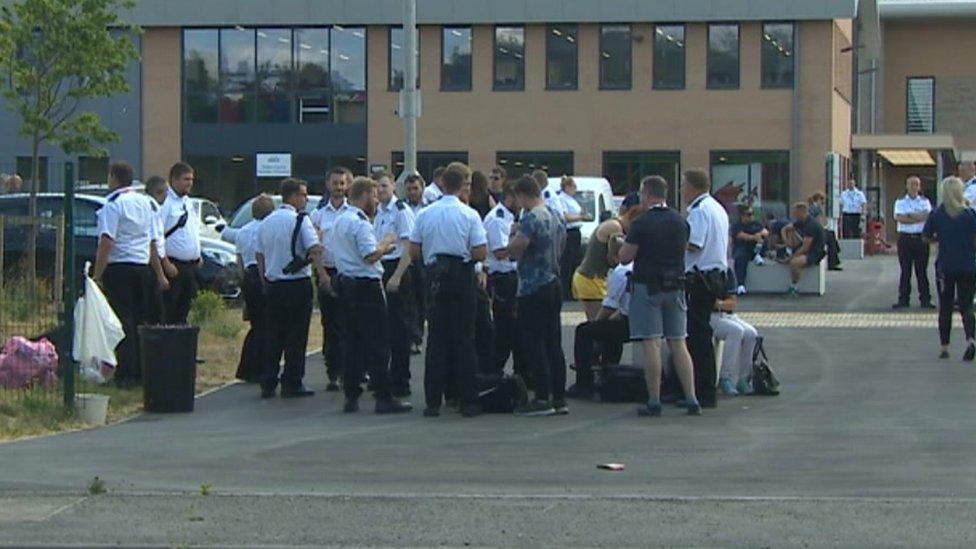HMP Berwyn: 'Urgent' action needed to cut prisoner public protection risks
- Published
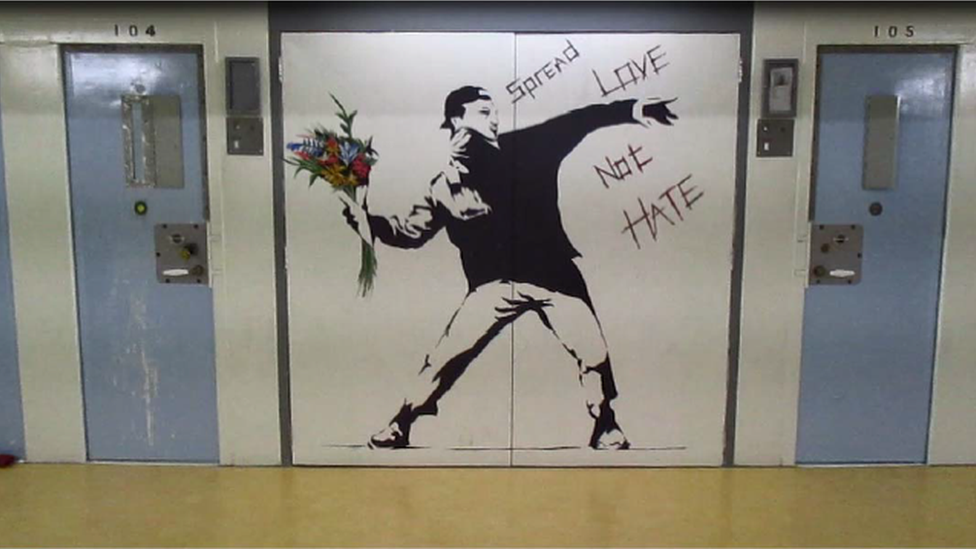
A mural inside HMP Berwyn, where leaders have aimed for a "strong rehabilitative culture"
Urgent attention is needed to manage public protection risks posed by some inmates at the UK's biggest prison, a report has said.
It follows an inspection which found there was no plan to tackle the causes of violence at HMP Berwyn in Wrexham.
Inspectors also found drugs were "too readily available" and one in four prisoners told them they developed a drug problem while there.
But staff were praised as a "strength" and education was "excellent".
HMP Berwyn opened in January 2017 at a cost of £250m.
The category C facility has faced issues including staff claiming it was unsafe because of attacks by prisoners, while its first governor was suspended over unpublished allegations made against him.
There has also been a drugs-related death and a prison officer was jailed for having sex with an inmate.
Designed to house 2,106 men, the so-called super-prison was holding 1,273 inmates when HM Inspectorate of Prisons visited in March.
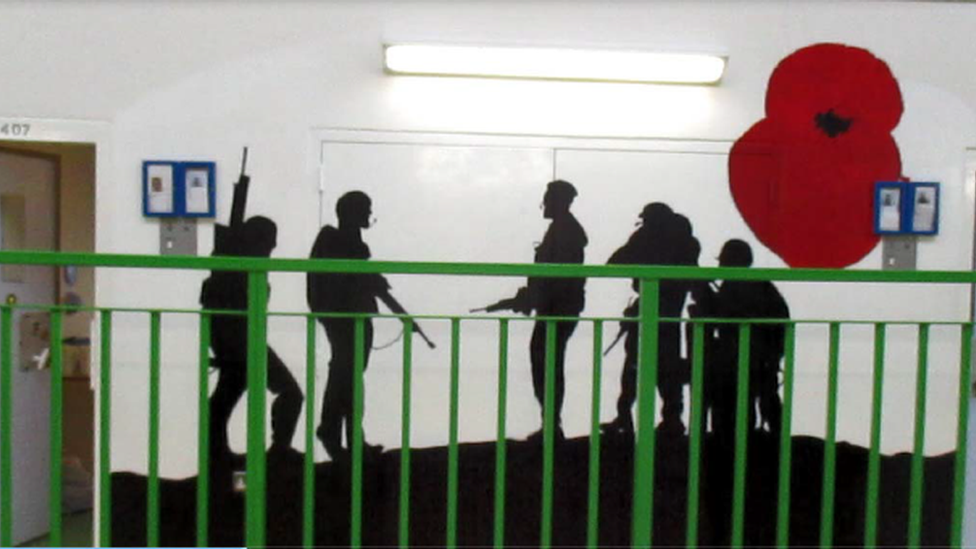
The prison staff were "a strength" but their inexperience was having "a negative impact"
Peter Clarke, chief inspector of prisons, said opening a new prison was a big challenge.
"The prison opened with a very clear rehabilitative vision which has faced resistance at times," he said.
"The leadership team are still working hard to find and maintain the right balance between rehabilitation and security, freedom and control, and sanctions and reward."
"Some mistakes have been made and we identify some important weaknesses, but we also acknowledge the great effort that has been made to give this prison a good start.
"The prison is generally ordered and settled, and… we found Berwyn to be a reasonably respectful place."
There was more to do, though, in the areas of safety, purposeful activity and rehabilitation and release planning, inspectors said.
Inspectors found:
Managers did not consider all high-risk releases systematically
From April 2019, there was "no realistic plan to address the resettlement needs of prisoners to be released to England"
Psychoactive substances in particular "posed a threat" while half of prisoners told inspectors they could get drugs easily
Prisoner-on-prisoner assaults were lower than expected, but prisoner-on-staff assaults were higher
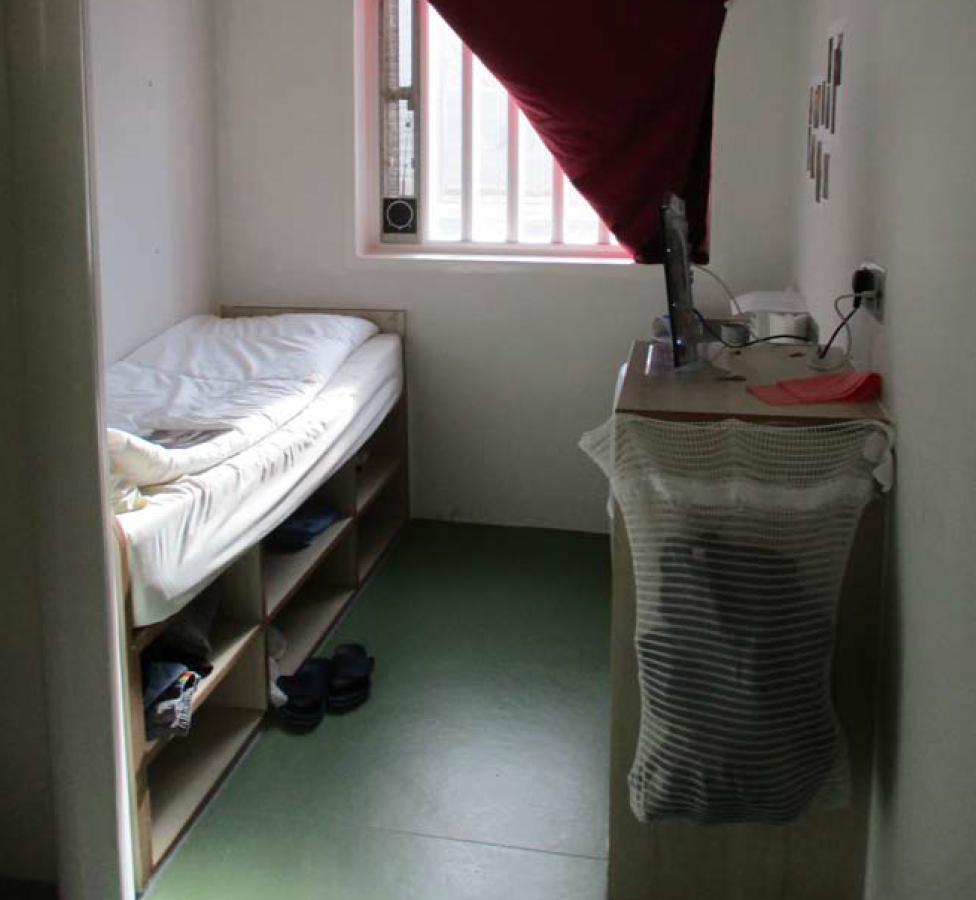
Each room as a shower, phone and laptop for internal prison activity
Inspectors acknowledged there were signs attacks were gradually reducing and work was being done to reduce violence but "delivery often lacked drive and needed to be implemented more effectively".
There was also "no action plan to tackle the causes of violence and monitor this for its effectiveness in reducing violence".
The report added: "There was inconsistency in the application of rules, some low-level poor behaviour went unchallenged, and staff could struggle to answer even basic questions from prisoners."
However, education and vocational training was deemed to be "excellent" with prisoners who attended making "effective progress".
Director general for Probation and Wales, Amy Rees, said: "The new governor in place since the inspection is already building on that progress, including through closer working with the police and better searching for illicit drugs and introducing a new model that challenges poor behaviour and reduces violence."
However, the inspectorate also said staff were "a strength of the prison", but needed "support in delivering the basics consistently" and staff inexperience was having "a negative impact on many aspects of prison life."
Three quarters of officers had been in service for less than two years and about a third for less than one year.

Analysis by Jenny Rees, BBC Wales home affairs correspondent
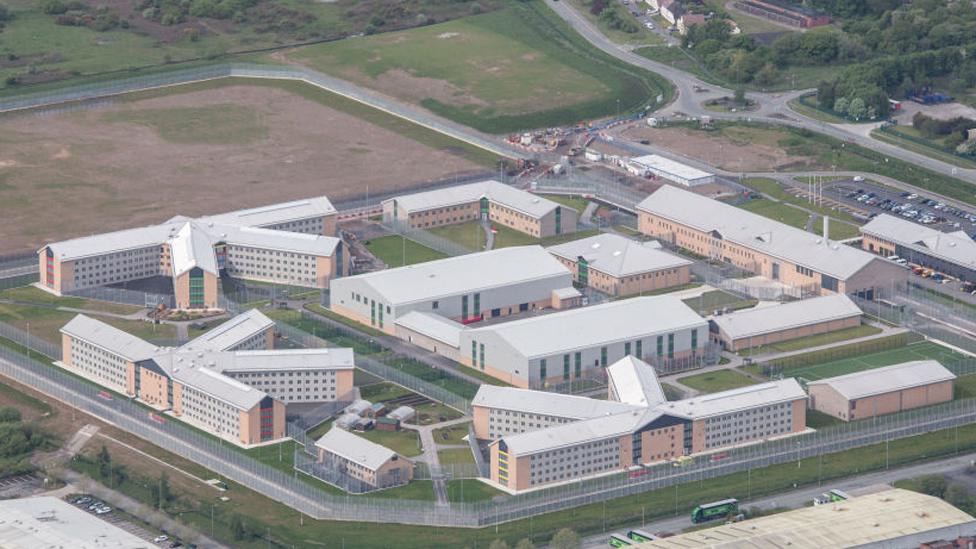
This super-prison was meant to be one of Europe's largest. Yet two and a half years on, it still is not all that "super".
The intention was always to fill it gradually, but numbers have had to be capped because they still do not have enough activity places - or staff - to cope with full capacity. Even the chief inspector finds the delays difficult to understand.
Poor behaviour has gone unchallenged by inexperienced staff - three quarters have been in the job less than two years - something their union says is played upon by the experienced prisoners.
There are positives. Staff are still described as a strength - as too is the education and health care provided (although you would wait 42 weeks for routine dental care).
But it is hard to ignore the major weaknesses.
Prisoners are developing drug habits; almost half say they are easy to get hold of.
And while prisoner-on-prisoner attacks are low, it is a different picture for attacks on staff.
Likewise for the vulnerable. Self harm is comparatively low but those who isolate themselves are being "completely unsupported", even experiencing difficulties getting meals.
Setting up a new prison was always going to be a challenge, particularly on the scale of Berwyn.
But this inspection report does little to comfort those concerned that "super" doesn't necessarily mean better.
- Published26 April 2019

- Published29 March 2019
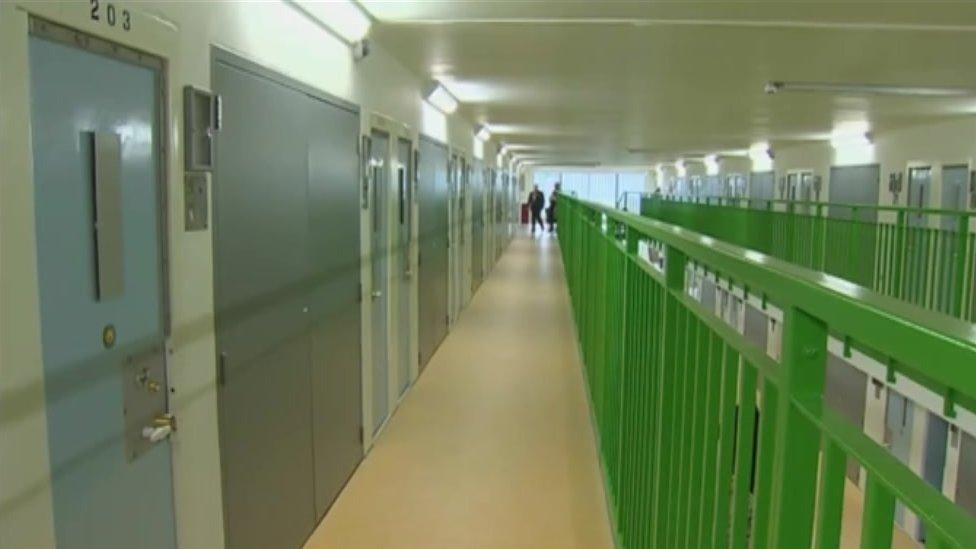
- Published9 January 2019
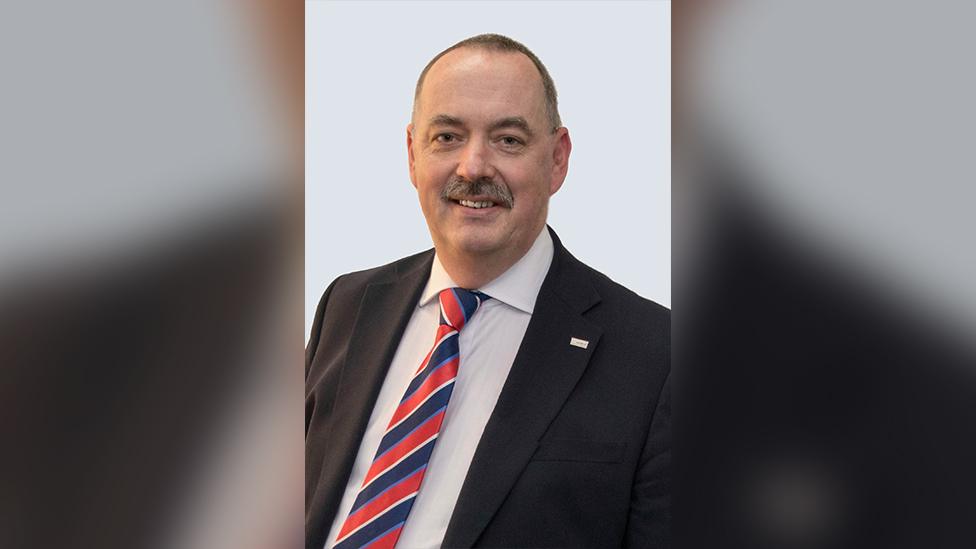
- Published9 July 2018
